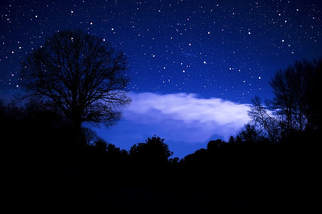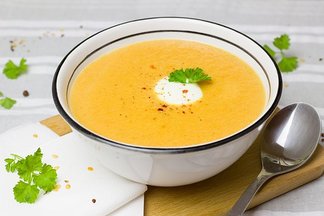Dosha

Dosha literally means "that which is quick to go out of balance". Ayurveda describes the physical, psychic and cosmic language of the body and universe created from the five great elements - earth, water, fire, air and ether - and congregating in patterns known as doshas. The doshas are dynamic forces of energy and matter. Vata dosha is the combination of air and space, the most subtle of the elements. The seasons of the year when it predominates are fall and winter. The qualities of Vata are dry, cold, irregular, mobile and rough. Vata is movement. Vata is the most dominant of the doshas; nothing moves in the body without Vata. Vata is present in every cell and has a special affinity for the brain, nervous system, heart, colon, bones, lungs, bladder and bone marrow. Vata predominates as we age and is usually at the root of every disease process. During the day, Vata predominates from between 2AM - 6AM and again between 2PM - 6PM
Typical Vata Disorders
Dry skin, constipation, weakness of bones, cracking joints, difficulty with loud noises, arthritis, poor memory and diminution of hearing and vision are all symptoms of increased Vata. Emaciation, spaciness, excess worrying, anxiety, insomnia, or interrupted sleep, fatigue, dryness of eyes, low energy, low back pain, sexual dysfunction, and menstrual disorders are also signs of too much Vata.
Keeping Vata in balance

Just as the wind dries laundry on a clothesline outdoors, the winter wind sucks the moisture out of the body. Keeping the body lubricated counters this dryness. Self massage with warm sesame oil daily and plenty of good quality oils in food, especially ghee, are recommended. Keep hydrated by sipping warm herbal teas. Vata is cold, so stay warm. Food should be warm and well cooked; raw food is cool and harder to digest. So save the salads for summer. Dairy products, well-cooked whole grains and root vegetables are grounding. Keep warm always, taking care to wear layers and hats and scarves. Vata can demand more substantial food to oppose its airiness. However, be careful with beans since most beans are astringent and can dry tissues. Split mung beans are always a safe choice. The irregularity of Vata needs routine, calmness and nourishment.
The Gift of Vata

The sweet, sour and salty tastes reduce Vata as they bring heat and moisture, qualities needed to balance dry and cold Vata. We all need all six tastes every day, but the bitter, astringent and pungent tastes should be minimal. Avoid dry foods like toast, crackers and popcorn. Warming spices like ginger and cinnamon are good. Eat at the same times everyday and eat meals mindfully. Processed foods, sugar, caffeine and alcohol all aggravate Vata. Our culture tends to view aerobic exercise as the only real exercise, but Vata does best with gentle exercise like tai chi, chi gong, not too strenuous yoga, swimming and walking.
Herbs often used to balance Vata are Dashamoola, Ashwagandha, Skullcap, Gotu Kola, Brahmi, Triphala, Vidari, Shatavari and Guduchi.
We all have Vata, and by paying attention to the changing qualities we experience, we can use our routines, food and environment to mitigate excess. Learning to manage Vata is anti-aging since Vata increases as we age.
Ayurveda is also translated as the science of longevity. Remaining vital through old age is a goal of Ayurveda, not to remain forever young, chasing fame, sex, money and work. Rather, the Vata stage of life, from about age 50 onward is the time for higher consciousness to develop. It is the time to develop wisdom, detachment and discrimination.
Herbs often used to balance Vata are Dashamoola, Ashwagandha, Skullcap, Gotu Kola, Brahmi, Triphala, Vidari, Shatavari and Guduchi.
We all have Vata, and by paying attention to the changing qualities we experience, we can use our routines, food and environment to mitigate excess. Learning to manage Vata is anti-aging since Vata increases as we age.
Ayurveda is also translated as the science of longevity. Remaining vital through old age is a goal of Ayurveda, not to remain forever young, chasing fame, sex, money and work. Rather, the Vata stage of life, from about age 50 onward is the time for higher consciousness to develop. It is the time to develop wisdom, detachment and discrimination.

